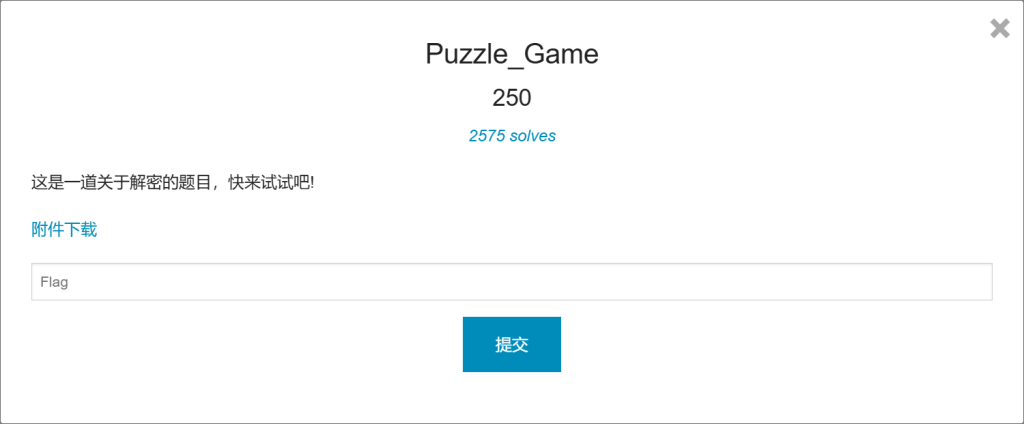本文最后更新于135 天前,其中的信息可能已经过时,如有错误可以直接在文章下留言
第2章 unidbg模拟执行初探
Android代码
Java层
package com.example.lesson2;
import androidx.appcompat.app.AppCompatActivity;
import android.os.Bundle;
import android.view.View;
import android.widget.TextView;
import com.example.lesson2.databinding.ActivityMainBinding;
public class MainActivity extends AppCompatActivity {
// Used to load the 'lesson2' library on application startup.
static {
System.loadLibrary("lesson2");
}
private TextView tv =null;
@Override
protected void onCreate(Bundle savedInstanceState) {
super.onCreate(savedInstanceState);
setContentView(R.layout.activity_main);
// Example of a call to a native method
tv=findViewById(R.id.sample_text);
tv.setText(stringFromJNI());
findViewById(R.id.btn_md5).setOnClickListener(new View.OnClickListener() {
@Override
public void onClick(View v) {
tv.setText(md5("dta"));
}
});
}
/**
* A native method that is implemented by the 'lesson2' native library,
* which is packaged with this application.
*/
public native String stringFromJNI();
public native String md5(String data);
}
Native层
#include <jni.h>
#include <string>
#include <stdio.h>
#include <stdlib.h>
#include <stdint.h>
void md5(const uint8_t *initial_msg, size_t initial_len, uint8_t *digest);
extern "C" JNIEXPORT jstring JNICALL
Java_com_example_lesson2_MainActivity_stringFromJNI(
JNIEnv* env,
jobject /* this */) {
std::string hello = "Hello from C++";
return env->NewStringUTF(hello.c_str());
}
extern "C"
JNIEXPORT jstring JNICALL
Java_com_example_lesson2_MainActivity_md5(JNIEnv *env, jobject thiz, jstring data) {
// TODO: implement md5()
char* msg = const_cast<char*>(env->GetStringUTFChars(data,0));
int len = strlen(msg);
uint8_t result[16];
for(int i=0;i<1000000;i++){
md5((uint8_t*)msg,len,result);
}
char res[32]={0};
for (int i=0;i<16;i++){
sprintf(res+i*2,"2.2x",result[i]);
}
return env->NewStringUTF(res);
}
const uint32_t k[64] = {
0xd76aa478, 0xe8c7b756, 0x242070db, 0xc1bdceee ,
0xf57c0faf, 0x4787c62a, 0xa8304613, 0xfd469501 ,
0x698098d8, 0x8b44f7af, 0xffff5bb1, 0x895cd7be ,
0x6b901122, 0xfd987193, 0xa679438e, 0x49b40821 ,
0xf61e2562, 0xc040b340, 0x265e5a51, 0xe9b6c7aa ,
0xd62f105d, 0x02441453, 0xd8a1e681, 0xe7d3fbc8 ,
0x21e1cde6, 0xc33707d6, 0xf4d50d87, 0x455a14ed ,
0xa9e3e905, 0xfcefa3f8, 0x676f02d9, 0x8d2a4c8a ,
0xfffa3942, 0x8771f681, 0x6d9d6122, 0xfde5380c ,
0xa4beea44, 0x4bdecfa9, 0xf6bb4b60, 0xbebfbc70 ,
0x289b7ec6, 0xeaa127fa, 0xd4ef3085, 0x04881d05 ,
0xd9d4d039, 0xe6db99e5, 0x1fa27cf8, 0xc4ac5665 ,
0xf4292244, 0x432aff97, 0xab9423a7, 0xfc93a039 ,
0x655b59c3, 0x8f0ccc92, 0xffeff47d, 0x85845dd1 ,
0x6fa87e4f, 0xfe2ce6e0, 0xa3014314, 0x4e0811a1 ,
0xf7537e82, 0xbd3af235, 0x2ad7d2bb, 0xeb86d391 };
// r specifies the per-round shift amounts
const uint32_t r[] = {7, 12, 17, 22, 7, 12, 17, 22, 7, 12, 17, 22, 7, 12, 17, 22,
5, 9, 14, 20, 5, 9, 14, 20, 5, 9, 14, 20, 5, 9, 14, 20,
4, 11, 16, 23, 4, 11, 16, 23, 4, 11, 16, 23, 4, 11, 16, 23,
6, 10, 15, 21, 6, 10, 15, 21, 6, 10, 15, 21, 6, 10, 15, 21};
// leftrotate function definition
#define LEFTROTATE(x, c) (((x) << (c)) | ((x) >> (32 - (c))))
void to_bytes(uint32_t val, uint8_t *bytes)
{
bytes[0] = (uint8_t) val;
bytes[1] = (uint8_t) (val >> 8);
bytes[2] = (uint8_t) (val >> 16);
bytes[3] = (uint8_t) (val >> 24);
}
uint32_t to_int32(const uint8_t *bytes)
{
return (uint32_t) bytes[0]
| ((uint32_t) bytes[1] << 8)
| ((uint32_t) bytes[2] << 16)
| ((uint32_t) bytes[3] << 24);
}
void md5(const uint8_t *initial_msg, size_t initial_len, uint8_t *digest) {
// These vars will contain the hash
uint32_t h0, h1, h2, h3;
// Message (to prepare)
uint8_t *msg = NULL;
size_t new_len, offset;
uint32_t w[16];
uint32_t a, b, c, d, i, f, g, temp;
// Initialize variables - simple count in nibbles:
h0 = 0x67452301;
h1 = 0xefcdab89;
h2 = 0x98badcfe;
h3 = 0x10325476;
//Pre-processing:
//append "1" bit to message
//append "0" bits until message length in bits ≡ 448 (mod 512)
//append length mod (2^64) to message
for (new_len = initial_len + 1; new_len % (512/8) != 448/8; new_len++)
;
msg = (uint8_t*)malloc(new_len + 8);
memcpy(msg, initial_msg, initial_len);
msg[initial_len] = 0x80; // append the "1" bit; most significant bit is "first"
for (offset = initial_len + 1; offset < new_len; offset++)
msg[offset] = 0; // append "0" bits
// append the len in bits at the end of the buffer.
to_bytes(initial_len*8, msg + new_len);
// initial_len>>29 == initial_len*8>>32, but avoids overflow.
to_bytes(initial_len>>29, msg + new_len + 4);
// Process the message in successive 512-bit chunks:
//for each 512-bit chunk of message:
for(offset=0; offset<new_len; offset += (512/8)) {
// break chunk into sixteen 32-bit words w[j], 0 ≤ j ≤ 15
for (i = 0; i < 16; i++)
w[i] = to_int32(msg + offset + i*4);
// Initialize hash value for this chunk:
a = h0;
b = h1;
c = h2;
d = h3;
// Main loop:
for(i = 0; i<64; i++) {
if (i < 16) {
f = (b & c) | ((~b) & d);
g = i;
} else if (i < 32) {
f = (d & b) | ((~d) & c);
g = (5*i + 1) % 16;
} else if (i < 48) {
f = b ^ c ^ d;
g = (3*i + 5) % 16;
} else {
f = c ^ (b | (~d));
g = (7*i) % 16;
}
temp = d;
d = c;
c = b;
b = b + LEFTROTATE((a + f + k[i] + w[g]), r[i]);
a = temp;
}
// Add this chunk's hash to result so far:
h0 += a;
h1 += b;
h2 += c;
h3 += d;
}
// cleanup
free(msg);
//var char digest[16] := h0 append h1 append h2 append h3 //(Output is in little-endian)
to_bytes(h0, digest);
to_bytes(h1, digest + 4);
to_bytes(h2, digest + 8);
to_bytes(h3, digest + 12);
}Unidbg代码
package com.dta.lesson2;
import com.github.unidbg.AndroidEmulator;
import com.github.unidbg.Emulator;
import com.github.unidbg.LibraryResolver;
import com.github.unidbg.Module;
import com.github.unidbg.arm.backend.DynarmicFactory;
import com.github.unidbg.linux.android.AndroidEmulatorBuilder;
import com.github.unidbg.linux.android.AndroidResolver;
import com.github.unidbg.linux.android.dvm.DalvikModule;
import com.github.unidbg.linux.android.dvm.DvmObject;
import com.github.unidbg.linux.android.dvm.StringObject;
import com.github.unidbg.linux.android.dvm.VM;
import com.github.unidbg.linux.android.dvm.jni.ProxyDvmObject;
import com.github.unidbg.memory.Memory;
import com.sun.jna.Pointer;
import java.io.File;
import java.util.ArrayList;
import java.util.List;
import java.util.Objects;
public class MainActivity {
private final AndroidEmulator emulator;
private final VM vm;
private final Memory memory;
private final Module module;
private MainActivity() {
emulator = AndroidEmulatorBuilder
.for64Bit()
.addBackendFactory(new DynarmicFactory(true))
.build();
memory = emulator.getMemory();
memory.setLibraryResolver(new AndroidResolver(23));
vm = emulator.createDalvikVM(new File("unidbg-android/src/test/java/com/dta/lesson2/app-dubg.apk"));
DalvikModule dalvikModule = vm.loadLibrary(new File("unidbg-android/src/test/java/com/dta/lesson2/liblesson2.so"), true);
module =dalvikModule.getModule();
vm.callJNI_OnLoad(emulator,module);
}
public void callMD5(){
DvmObject obj = ProxyDvmObject.createObject(vm,this);
String data="dta";
DvmObject dvmObject = obj.callJniMethodObject(emulator,"md5(Ljava/lang/String;)Ljava/lang/String;",data);
String result = (String) dvmObject.getValue();
System.out.println("[symbol]Result->"+result);
}
private void call_address(){
Pointer jniEnv = vm.getJNIEnv();
DvmObject obj = ProxyDvmObject.createObject(vm,this);
StringObject data = new StringObject(vm,"dta");
List<Object> args = new ArrayList<>();
args.add(jniEnv);
args.add(vm.addLocalObject(obj));
args.add(vm.addLocalObject(data));
Number number = module.callFunction(emulator,0xF35C,args.toArray());
DvmObject<?> object = vm.getObject(number.intValue());
String value = (String) object.getValue();
System.out.println("[addr]Result->"+value);
}
public static void main(String[] args) {
long start = System.currentTimeMillis();
MainActivity mainActivity = new MainActivity();
System.out.println("load the vm"+(System.currentTimeMillis()-start)+"ms");
mainActivity.callMD5();
mainActivity.call_address();
}
}
//[symbol]Result->36072180305f072a2e2c7ea96eedf034
//[addr]Result->36072180305f072a2e2c7ea96eedf034
